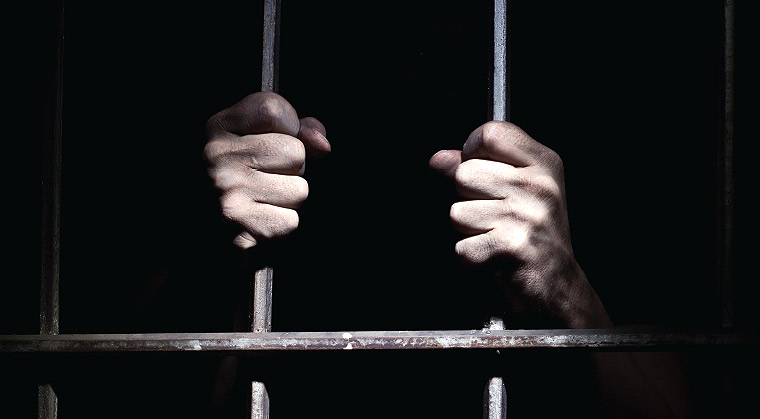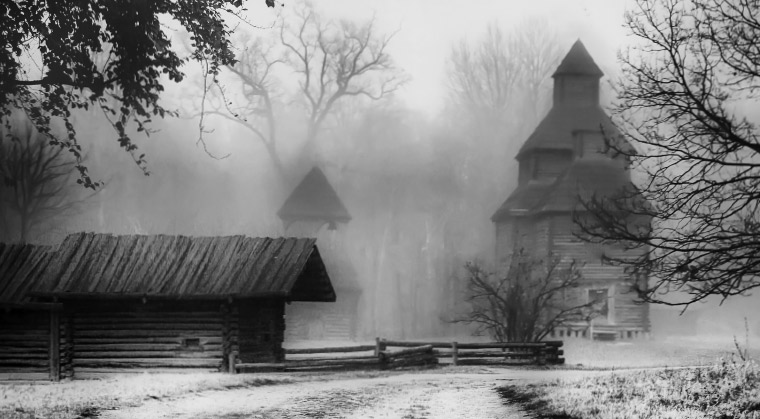And Seal Us for Life


Hundreds of Yidden stood in the shul, many of them standing since dawn on the holiest day of the year. Their eyes followed the words in the machzor, sung by the renowned chazzan Reb Yeruchem Shatz, who was completely immersed in the tefillah. His voice rose and fell with the words of the avodah, where the machzor describes the service of the Kohein Gadol on this lofty day.
Suddenly the worshippers standing in the aisle felt somebody pushing his way through the crowd, trying to get to the mizrach and the area of the aron kodesh. A quick glance showed that the frantic newcomer was Rav Yitzchak Ze’ev, son of the gaon hador Rav Chaim HaLevi, who illuminated Brisk and the entire Jewish world with his Torah and holiness. Rav Chaim had a minyan of his own at his home, and his family, of course, davened with him.
When the mispallelim saw who the person was, they realized something important must have happened, and they made way for Rav Yitzchak Ze’ev.
He touched the edge of the chazzan’s tallis and whispered in his ear: “My father is calling you.”
The chazzan abruptly stopped the tefillah and stared at the Rav’s son. Had he really heard those words, or was it a dream? Who stopped a chazzan in the middle of the davening on Yom Kippur?!
Reb Yeruchem, assured this was no dream, began to argue with the Rav’s son with hand motions. He pointed to the machzor and then to the crowd, as if to say, “How can I leave the amud now, in the middle of the tefillah?”
But Rav Yitzchak Ze’ev was unmoved. “If my father is summoning you now, you must realize it’s urgent.”
The chazzan accepted this explanation. He took off his tallis and left the shul with the Rav’s son. Hundreds of pairs of surprised eyes followed them. Someone else took the chazzan’s place and Mussaf continued.
A short time later, Reb Yeruchem Shatz stood before Rav Chaim of Brisk, waiting for instructions.
T
hese were tumultuous times, in the Russia of about 110 years ago. The last czar was still in control, but his regime had become shaky and he was in danger. Revolutionary groups were cropping up everywhere, each one representing new and strange ideologies — and infused with a burning desire to rule. While the groups had different political views, they did agree on two things: They had to topple the czar, and they had to embitter the lives of the Jews, who were always suspected of aiding the other side.
The czar’s regime did everything possible to suppress these attempts at revolt. Secret police blended into the population and anyone who was suspected of helping the opposition groups — even in a minor way — was prosecuted in a short trial and then executed.
One day, two young Jews, simple laborers who lived in Brisk, were apprehended on suspicion of participating in anti-regime activities. They were judged by a military court, where they were given no chance to prove their innocence. A short time later, they were sentenced to death by hanging. Their families desperately tried to obtain information: Who had the authority to issue and carry out the sentence? Could it at least be delayed?
A
fter extensive efforts, they learned the following: The sentencing required the approval and signature of three top officials in the Russian regime. Two of them had already signed, one of whom was the minister in charge of the Grodna province. The government needed only the signature of Mr. Skalin, governor of the Warsaw district.
That year, 5667, Yom Kippur fell on Monday. On Erev Shabbos Shuvah, the Shabbos prior to Yom Kippur, the distraught wives of the two convicted men came to Rav Chaim Soloveitchik. The Gaon had already heard about the double calamity and wanted to know where things stood.
“We’ve just returned from a visit to the prison in Warsaw,” said one of the women. “We weren’t allowed to speak with our husbands, only to see them from far. They are already wearing red shirts, the standard clothing issued to those condemned to be killed. When they saw us, they cried ‘Shema Yisrael’ as a hint to their imminent end.”
The two women began to cry. The second one recalled, in between her tears, that they had received a glimmer of hope.
“We found a lawyer whose name is Zuckerman,” she told the Rav. “He is ready to travel immediately to Warsaw to try to delay the execution. However, he is demanding 100 rubles in cash for his work.
“We’ve sold everything we have in our homes,” she continued, for this was an enormous sum. “Housewares, furniture and jewelry. But we still are 50 rubles short.”
Rav Chaim didn’t lose a minute. He immediately organized an urgent meeting of all the gabbaim of the city’s shuls. “Please empty all the tzedakah boxes that you are responsible for and bring every coin here.”
Within two hours Rav Chaim had the full sum — and a little more.
“We can’t trust this Zuckerman 100 percent,” said one of tzedakah gabbaim, who had brought with him a larger sum than was necessary. “We need to add a Torah-observant lawyer from our side who won’t allow things to get out of control.”
Rav Chaim agreed wholeheartedly. With the extra tzedakah money, they hired a Jewish lawyer from Brisk named Mazritch. Rav Chaim summoned Mr. Mazritch and issued a clear psak halachah: “You have been tasked with a mission of pikuach nefesh. You must carry out everything that is needed toward this end, even on Yom Kippur.”
T
hat year, the Day of Judgment in Brisk had a special meaning, as everyone waited for good news; Avinu Malkeinu, kera ro’a gezar dinenu.
The first rays of dawn broke through the clouds early on Yom Kippur morning. In Rav Chaim’s home, his private minyan had already gathered and begun the lengthy tefillah. Those words of prayer came to an abrupt halt when the wives of the convicts appeared and asked for the Rav. They showed him a telegram they had just received from the lawyer Mazritch, in which he hinted the situation wasn’t simple, but not all hope was lost. He had found a big shtadlan in Warsaw named Patik, who was ready to help — for a price. Two hundred rubles, to be precise.
“Stop!” the Gaon ordered the mispallelim.
He called to his son Rav Yitzchak Ze’ev and instructed him to go to Brisk’s two largest shuls and again empty the tzedakah boxes, which were surely full of money given by Jews on Erev Yom Kippur.
In addition, the Rav sent several of the people davening in his home to all the shuls in the city, telling them to go up to the bimah, stop the tefillah and announce in the name of Rav Chaim that everyone was obligated from the Torah to run home and bring all the money they had in order to save lives. Pikuach nefesh pushes away even the holiness of the day.
Rav Chaim had one last set of instructions. “Go to the wealthy residents of the city,” he told several other mispallelim. “Tell them what has happened, and demand in my name that they give large sums of money.”
The 200 rubles that Patik had demanded were quickly collected. Rav Chaim then sent a telegram to Warsaw to Mazritch saying: “We have the money. Send the shtadlan.”
Rav Chaim returned to daven, but there were numerous interruptions. In the middle of Mussaf the women once again came and related that they had learned that the deputy of the minister in charge of Grodna was then in Brisk.
“Even though the minister has already signed,” said one of the women, “perhaps he can be convinced to appeal to the minister to delay the execution. Maybe the Rav can send a few askanim to meet the deputy minister, who is at a hotel here in the city.”
The suggestion seemed absurd. The minister of Grodna had drafted the sentence himself. It was inconceivable that his deputy would be able to reverse the decision.
“But with pikuach nefesh, we don’t follow logic,” Rav Chaim determined. “We have to try everything possible.”
The Gaon immediately sent Rav Yitzchak Ze’ev to summon the two most dignified Yidden in Brisk, Reb Mordechai Bark and the chazzan Reb Yeruchem Shatz.
Rav Yitzchak Ze’ev ran to the shuls where these two prominent people davened. First he summoned Reb Mordechai, who, upon hearing the message, took off his tallis and ran to Rav Chaim’s home. Then Rav Yitzchak Ze’ev continued to the shul where Reb Yeruchem Shatz was davening from the amud.
When Reb Yeruchem got to Rav Chaim’s home, Reb Mordechai Bark was already there, trying to explain that the mission had no chance of succeeding. Reb Yeruchem agreed. But Rav Chaim was not convinced. He repeatedly said that with regard to pikuach nefesh, one needs to try even illogical things. He therefore insisted the two go at once to the deputy minister.
They obeyed the Rav’s instructions. But when they arrived at the Bristol Hotel, where the deputy minister was staying, they were told the deputy minister had already left. Perhaps they could still catch him at the train station.
Meanwhile, day became night, and the two dignified Yidden were still fasting. But they didn’t even feel it. They hired a carriage and hurried to the train station in pursuit of the deputy minister.
A
t midnight the two emissaries, who still hadn’t eaten, returned to the home of Rav Chaim of Brisk. They did meet the deputy minister at the train station, they told the Rav. At first, the man was courteous. But as soon as he realized why the two Jews wished to speak with him, he brought the conversation to an end and walked away.
“But in the train station, we met a wealthy Jew from out of town named Lipschitz, who had just arrived,” said one of the emissaries. “This Lipschitz knows Senator Leschinsky, who is very friendly with the governor of Warsaw. Lipschitz drafted a letter for us to the senator, in which he asks him to plead with the governor of Warsaw to delay the execution. Lipschitz also suggested that we should send someone to Saint Petersburg and try to meet with Senator Leschinsky in person. Then, during the meeting, the emissary should give the senator this letter and try to convince him to persuade the governor of Warsaw to delay carrying out the sentence.”
Rav Chaim now sent his son to again summon the respected members of the city, because he wanted to send emissaries to Saint Petersburg. In addition, he sent for Mr. Lipschitz, who was staying in Brisk, hoping to convince him to be the one to carry out his own idea.
Mr. Lipschitz agreed. He and the two respected Brisker Jews traveled to Saint Petersburg, where the senator did give them a letter of recommendation to the governor of Warsaw.
Back in Brisk, they heard from Patik, the shtadlan in Warsaw, who had received his 200 rubles; he had been able to get the case transferred to Vilna. Maybe there it would be easier to change the decree.
Rav Chaim once again wasted no time. He sent a telegram to Rav Chaim Ozer Grodzensky of Vilna to do everything possible to save the convicted men. Rav Chaim also sent emissaries to do what they could to save these lives.
A day later, Rav Chaim Ozer sent an update in a telegram: To act, it was necessary for Rav Chaim of Brisk to also send a telegram to Dr. Kantor, who was the recognized rabbi of the authorities in Vilna, and to another Jew named Feivel Ganz. The telegram needed to state, with a signature, that he personally vouched for the innocence of the two men and that he was prepared to testify and swear that they weren’t guilty — and that at the time they were supposed to have committed the crime, they were not even in that place and would not have had any possibility of being involved in subversion against the regime.
Rav Chaim Ozer added in the telegram that Rav Chaim’s signature needed to have the approval of the manager of the post office in Brisk.
After the telegram reached Vilna, Dr. Kantor received an appointment with the general who was the ruler of Vilna and showed him the telegram. Explaining that he didn’t personally know the convicts, he assured the general that even if the Rav of Brisk was given all the gold and silver in the world, not a single word of falsehood would emerge from his mouth.
“Bring me the file of this case,” the general ordered. “I am commuting the death sentence to a life sentence. They will be sent to Siberia for hard labor.”
Dr. Kantor tried to sweeten this decree as well, but he didn’t succeed. He immediately sent a telegram to Brisk that the threat of death had been lifted.
T
en years later, during World War I, when Rav Chaim of Brisk and his family were living as refugees in Minsk, one of those two convicts entered his room and fell to his knees and said, “I owe the Rebbi my life. In the merit of his determined action on that Yom Kippur, we were no longer in danger of death. Several months ago, we were pardoned and released from Siberia.”
Later still, Rav Yitzchak Ze’ev, who had become the Brisker Rav after his father’s petirah, related the story to his followers. He added that this was only one of many stories of chesed that his father performed during the course of his wondrous life.
Many thanks to my friend Rabbi Shmuel Henig, author of the sefer Gadol B’Yisrael, on the history of his grandfather Rav Yisrael Grossman ztz”l, from whom he heard this story.
(Originally featured in Mishpacha, Issue 727)
Oops! We could not locate your form.













